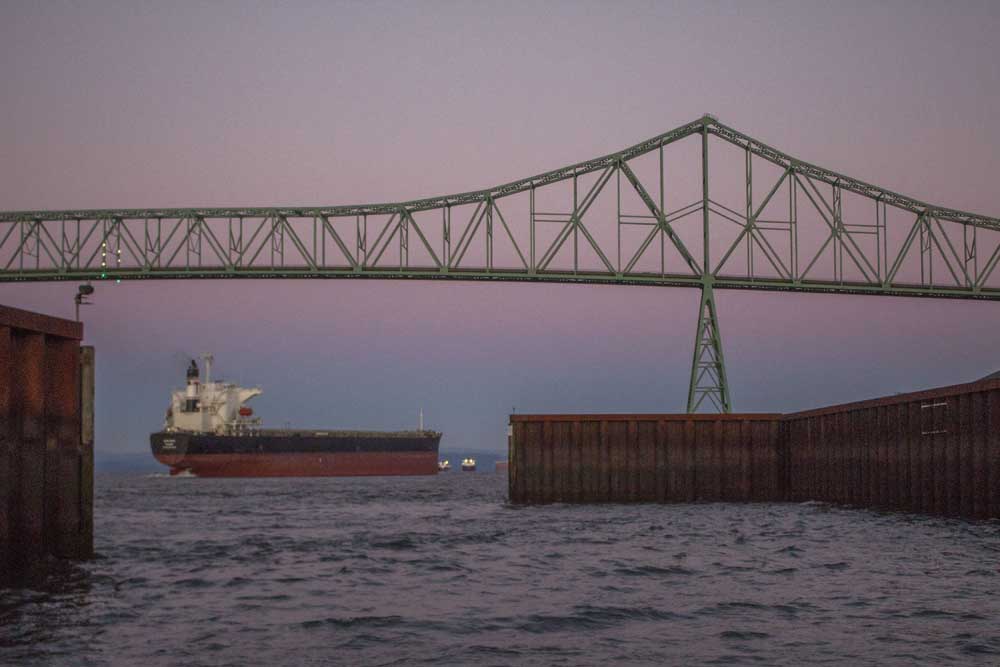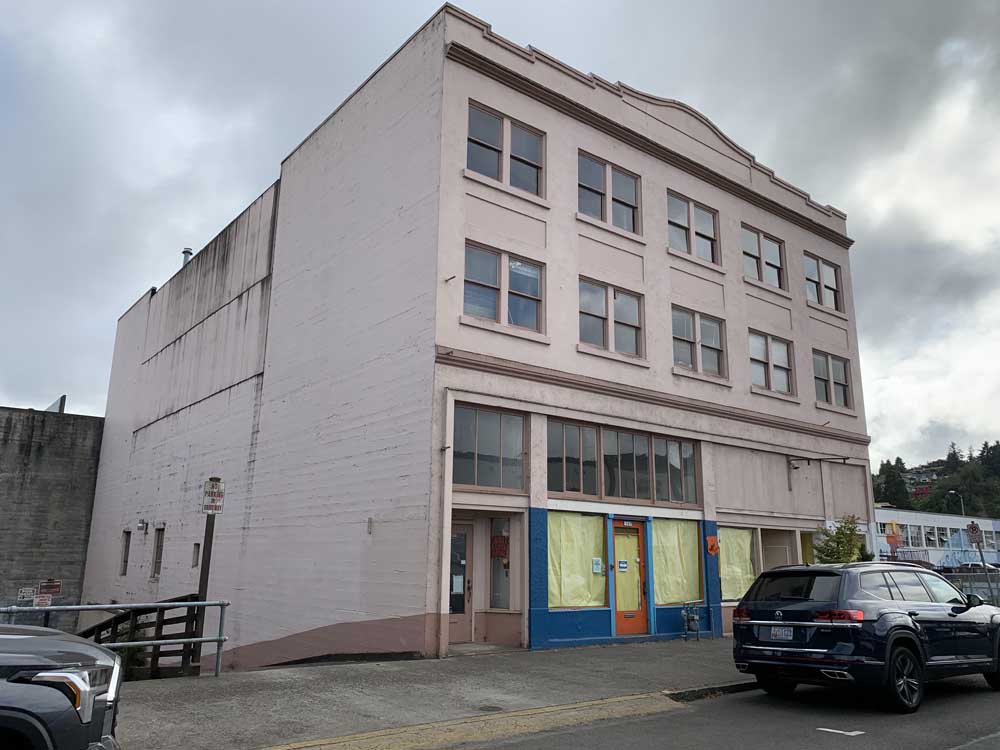Port of Astoria enacts $300 harbor maintenance fee
Published 8:00 am Wednesday, March 20, 2019

- A cargo ship passes under the Astoria Bridge in December.
The Port of Astoria will become one of only two ports on the West Coast to charge a harbor maintenance fee.
The Port Commission voted Tuesday to charge each incoming commercial vessel over 250 feet on the Columbia River $300 to help maintain Pier 1 as an emergency pullout. The Port’s jurisdiction runs to the Washington state side of the river.
Pier 1 sometimes plays host to ships ordered into port by the Coast Guard for repairs. Port staff have estimated more than $480,000 each fiscal year is needed to maintain the pier, its main berth for log and cruise ships.
The fee, based on an average of 1,500 vessels a year, is meant to capture those costs, and would be applied to maintenance on the pier. It will become effective at the beginning of the Port’s next fiscal year in July.
The fee has faced criticism from the Columbia River Steamship Operators’ Association, a group representing oceangoing vessel operators in the river. But Michael Haglund, a maritime attorney hired by the Port, has assured the agency it’s on solid legal footing.
“They are legitimate,” he said. “They are legal, and it’s an appropriate thing for you to do. The other point I’d make is that a $300 fee is not going to chase vessels that are coming to this river to load grain or other cargoes from coming to the Columbia River. These fees are not uncommon throughout the U.S. They’re a relatively tiny cost to a ship compared to its daily operating costs.”
Pier 1 as recently as November played host to the Liberian-flagged bulk carrier Leon Oetker, ordered into port for repairs to its radar and steering. The pier is also the only ideal location on the lower Columbia where land-based firefighters can battle a shipboard blaze, Haglund said.
Vancouver, British Columbia, is the only other Port on the West Coast to charge a harbor maintenance fee, Haglund said. But many ports on the Gulf Coast charge such fees, and Los Angeles enacted one temporarily to help pay for an infrastructure improvement.
The Port has couched its ability to charge the fee in a U.S. Supreme Court ruling that the Alabama State Docks Commission can charge ships a fee for policing.
“I’d be very surprised if there was litigation” over the fee, Haglund said.
Jim Knight, the Port’s executive director, said the agency has been conservative in tying the amount of the fee directly to the costs of maintaining Pier 1.
“I’ve yet to receive a single phone call or text message or email from any other port director or port staff concerned about the imposition of these fees,” he said.





